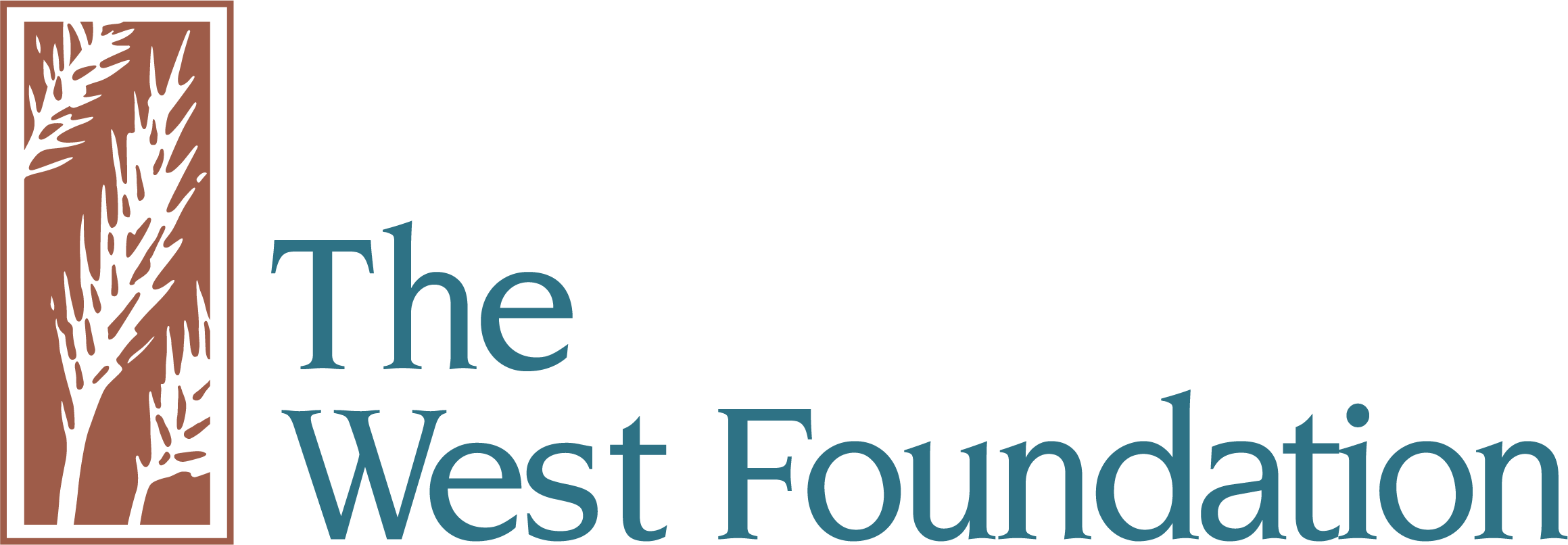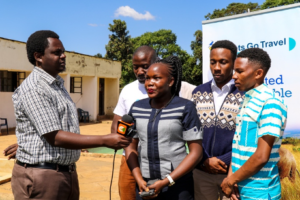Learn more about the African Wildlife Foundation
1. Tell us about your mission.
Founded in 1961, the African Wildlife Foundation (AWF) has since its inception worked to ensure wildlife and wild lands thrive in modern Africa. AWF takes a multifaceted approach, to protect wildlife and their natural habitats, empower communities through conservation enterprises and human development, and engage African leadership at all levels to support conservation. In 2020, AWF adopted a new 10-year strategic plan, driven by its vision of an Africa where human development includes thriving wildlife and extensive wild lands as a cultural and economic asset for Africa’s future generation.
2. How is The West Foundation supporting your mission?
AWF initially began as a leadership academy to equip African nationals to manage conservation efforts on the continent. AWF continues to invest in building African capacity and leadership for conservation. These efforts reflect AWF’s fundamental understanding of wildlife education as a means of cultivating conservation leaders and developing a population that recognizes their role in developing and maintaining positive conservation outcomes. Consequently, AWF understands that in order to achieve its vision, it must empower African youth as conservation gains will only be sustainable if future generations subscribe to this mission.
The West Foundation is supporting AWF’s advocacy effort to engage African youth in conservation and environmental sustainability discussions and enhance their leadership skills. AWF has partnered with the Global Youth Biodiversity Network (GYBN) to build the capacity of youth from Cameroon, Kenya, Uganda, and Zimbabwe to advocate for biodiversity issues and to engage with conservation policy discussions in their home countries. After participating in training workshops, young people will be provided the opportunity to participate in global convenings on biodiversity. This training and experience will empower African youth by building their leadership skills, exposing them to high-level national policy discussions, and providing them an opportunity to define their perspectives and to share input into the post-2020 biodiversity framework. Furthermore, The West Foundation’s support of AWF heightens a sense of ownership and agency among African youth as it relates to wildlife conservation.
The West Foundation has supported AWF since 2001. Previously, The West Foundation supported AWF’s conservation and social development work in the Limpopo Heartland (South Africa, Zimbabwe, and Mozambique) to train young African research scientists, strengthen the management capacity and infrastructure of protected area systems, and explore new sustainable conservation enterprises. In addition, the foundation contributed greatly to AWF’s Easements for Education program to provide scholarships for the children of families who agree to conserve wildlife, forests, and fisheries in the ecologically significant Sekute Chiefdom—located in the region where Zambia, Zimbabwe, Botswana, and Namibia intersect. The West Foundation enabled AWF to distribute and train teachers on the use of ZeduPad tablets to improve classroom learning, establish a small vegetable garden at the Lupani Primary School, as well as install solar panels in two of the six classrooms to permit adult literacy classes in the evenings. The West Foundation also contributed to AWF’s project to distribute improved cooking stoves among Simien Mountain communities to reduce deforestation and environmental pollution in Ethiopia.
3. Considering your impactful work to eliminate poverty, how is The West Foundation’s philanthropic support providing you with sustainability and mobility?
With the support of The West Foundation, AWF is working to ensure youth presence and leadership in defining dialogues about biodiversity conservation to shape strategic goals and targets as well as the corresponding actions by key stakeholders which inevitably influence not on conservation, but the nature in which Africa develops. Though African youth constitute a large proportion of the population on the continent, they are often overlooked in the development of programs to improve societal wellbeing. By engaging African youth in policy dialogues, AWF will help to shape the trajectory of Africa’s future in a more sustainable manner that gives precedence to the importance of biodiversity in ensuring healthy economies and ecosystems. This program is instrumental in advancing AWF’s critical objective to generate greater awareness of biodiversity issues and develop future leaders that will prioritize conservation.
4. How are you realizing your potential?
AWF is taking a more holistic approach, as guided by its country strategies and priorities, to ensure that conservation is mainstreamed into larger discussions of economy building and sustainable development. AWF is also prioritizing its engagement with youth and women because they are key drivers of change across Africa. AWF recognizes that its work would be impossible without the contributions of these two constituencies who make up the majority of the population on the continent today.
5. What’s one important thing you want others to know about your organization?
While AWF serves to promote conservation of biodiversity in Africa, the impact of doing so serves to the benefit of the global community. This is evidence in the fact that threats to African wildlife are not an “African” problem. For instance, illegal trade of wildlife and wildlife parts heightens regional and global security issues. Meanwhile, healthy ecosystems are vital to continued economic growth and to creating new business opportunities in Africa. Furthermore, increased global demand for wildlife and wildlife products intensifies the risk of iconic wildlife – often those that play a key role in ecosystems – becoming extinct. As development continues in Africa, AWF will continue to work to ensure that conservation agendas are linked to economic and social development.
6. How can people reading this help you?
- Donate to help AWF expand our conservation efforts
- Learn about AWF’s youth engagement work
- Learn about the treasured species AWF protects every day
- Get an inside look at conservation on the AWF blog
- Spread awareness about Africa’s poaching crisis by sharing AWF’s infographic
7. What are your deepest needs as an organization?
Africa’s magnificent wildlife species is at risk of disappearing forever. In the last few decades alone, the world has lost more than 60 percent of forest elephants and more than 40 percent of lions. Poaching, driven by global demand, is at crisis levels. However, habitat loss poses the most extensive threat to African wildlife. The state of rainforests in Africa and around the world is an example. Scientists estimate that if current deforestation rates go unchecked, rainforests will be gone in 100 years — and most of their inhabitants with them. The picture is bleak, but not set in stone. In fact, change has already taken root. There is a growing consciousness that thoughtful economic and infrastructure development can and should incorporate conservation priorities. AWF helped bring about this change and works tirelessly every day to ensure a positive future for Africa’s wildlife and wild lands. AWF seeks to create strong alliances that bring together the public and private sectors, as well as individuals, to support efforts to overcome the challenges of wildlife protection and conservation.

